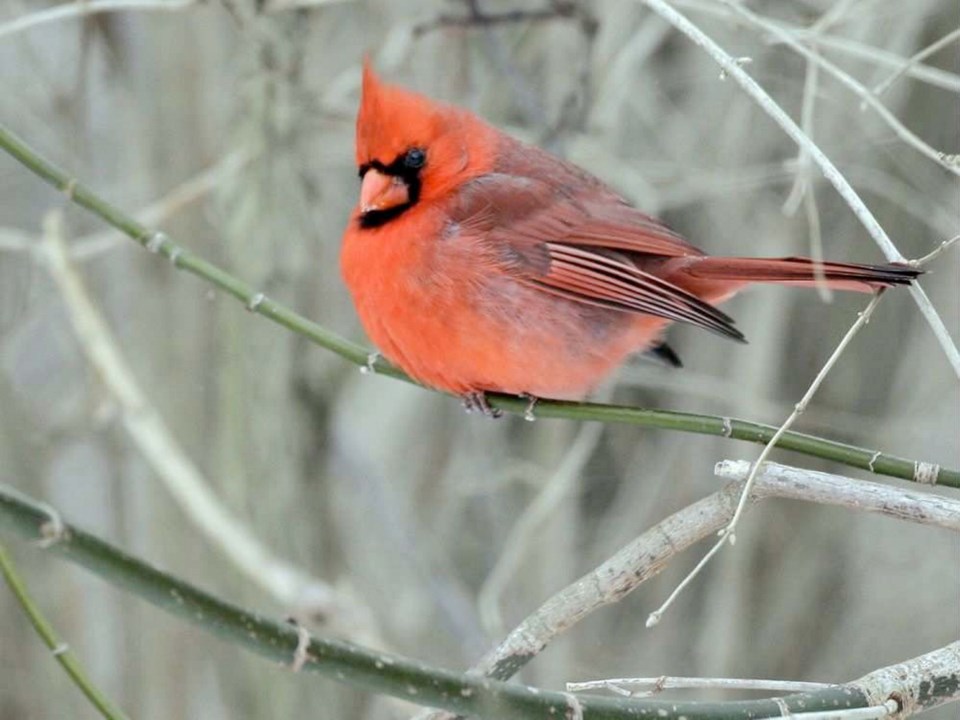Who needs an alarm clock when the springtime chorus strikes up an hour before dawn?
“This is way too early,” Nature Boy grumbled, as he sandwiched his head between pillows. He wasn’t referring to weekend lawnmowers, leaf blowers or nearby traffic. “I wish those birds would just keep quiet for an hour longer.”
But it’s not as if birds don’t put up with our noise.
Songbirds rely on sound to communicate information critical to their survival. They sing about where to find food and to warn about predators. At this time of year, the guys also advertise at length and high volume about what awesome mates they are and what great spreads of territory they have in which to raise baby birds.
And songbirds find humans stunningly noisy. Our noise — traffic din, airport noise, marine racket, construction clatter, leaf-blower blare, stereo-system blast and so on — drowns out their talk.
Just as we do when a big truck rumbles by or a helicopter whirs overhead, birds have to shout and shriek or wait until it passes to make themselves heard over the racket. Studies show that city birds sing louder and at different pitches than their country cousins.
For example, biologists have found that, to overcome traffic noise, red-winged blackbirds, eastern bluebirds, song sparrows, Eastern wood peewees and other songbirds sing more and higher-pitched song phrases that they can also easily belt out more loudly than their counterparts in quieter habitats. In some cases, the birds even strip down their songs to essentials to yell them more loudly — the equivalent to us yelling single words instead of entire sentences.
However, researchers also have found that birds’ attempts to be heard over the hullabaloo don’t necessarily yield hoped-for results. Birds hearing the altered calls don’t respond as strongly.
For example, researchers in Manitoba measuring noise from oil and gas machinery on the prairies showed that, while Savannah sparrows were sometimes able to adjust their song to compensate for disruptions in communication caused by the noise, the birds hearing the altered song were often too stressed to understand or react effectively. This can affect their ability to find mates and protect their territory.
That stress can have long-term effects. Male songbirds that experience stress early on often don’t fully develop their singing skills. One European study found that male white-throated dippers that grew up comfortable and middle class sang more often as adults and produced songs with more syllables than their poor, stressed-out kin.
In many species, lady songbirds see a complex singing repertoire as a sign of reproductive fitness. If a guy can’t belt out the show tunes, he doesn’t attract the ladies.
As for Nature Boy’s complaint, the sun might be rising at the hour it did this time last year, but the pre-dawn serenade might indeed be starting earlier. For this, too, we can take the credit.
Biologists in Spain observed how morning traffic noise along 12 streets in Seville affected the timing of the local dawn chorus. They found that sparrows start singing up to two hours earlier and starlings start one hour before dawn along the busiest, noisiest roads. The opening morning notes of other species are variable, beginning 20 to 30 minutes earlier.
Similarly, scientists in Germany found birds near a busy airport also start singing earlier than birds in quieter locations. Even though noise levels at the airport and distant, quiet areas are comparable until the first airplanes take off at 6 a.m., robins, blackbirds, blue tits, great tits and chaffinches living by the airport start singing five to 10 minutes earlier than their cousins in a forest four kilometres away.
What’s more, the researchers found that some species simply stop singing whenever air-traffic noise exceeds 78 decibels — equivalent to a car passing at 105 km/h, 7.5 metres away. The sound of planes taking off and landing reduced the birds’ available communication time by about 25 per cent.
Other studies have shown that birds that sing earlier in the morning find more mating partners.
The early bird might get the worm — but in noisy places, he also gets the ladies.



